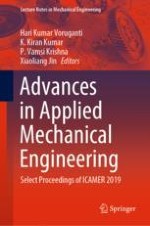2020 | OriginalPaper | Buchkapitel
On the Role of Amylum Additive-Based Cutting Fluids in Machining—An Experimental Investigation
verfasst von : R. Padmini, P. Vamsi Krishna, P. Jeevan Kumar
Erschienen in: Advances in Applied Mechanical Engineering
Verlag: Springer Singapore
Aktivieren Sie unsere intelligente Suche, um passende Fachinhalte oder Patente zu finden.
Wählen Sie Textabschnitte aus um mit Künstlicher Intelligenz passenden Patente zu finden. powered by
Markieren Sie Textabschnitte, um KI-gestützt weitere passende Inhalte zu finden. powered by
